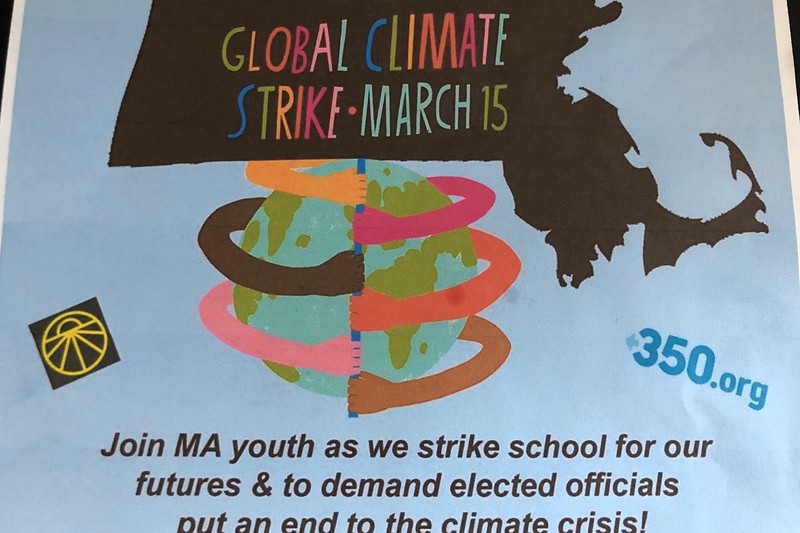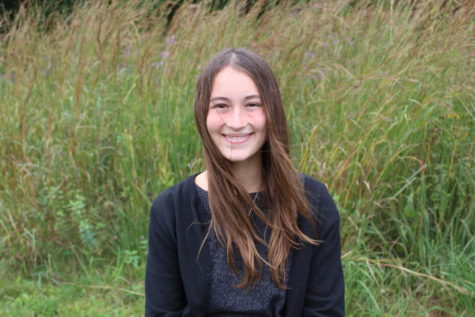Climate strike reaches WHS students
Credit: Cammy Lehr
A flyer asking students to unite against climate change by protesting on March 15. At WHS, 18.8 percent of the 135 students surveyed planned to participate in this protest. “There is a point of no return in climate change, and something should be done,” freshman William Catlin said.
March 21, 2019
Students around the world skipped school to protest for action against climate change on Friday, March 15. At WHS, 27 students of 151 surveyed planned on attending, resulting in a turnout of 18.1 percent of the surveyed students.
On Friday, students from 30 different countries around the world banded together to fight against climate change. The majority of these protests started with one person: Greta Thunberg, a 16-year-old girl from Sweden who has inspired many other students to protest. Thunberg first became famous in August 2018 when she stood outside the Swedish Parliament building, accusing lawmakers of failing to uphold their commitment to the Paris Climate Accords. Although students are banding together, people within different countries are asking for different things. Generally, however, students are requesting governments to heavily cut their greenhouse gas emissions.
The United States has a youth climate strike organization whose demands include stopping all fossil fuel infrastructure projects, requiring that laws passed about the climate must be tied to scientific research, declaring a national emergency on climate change, fostering education about climate through middle school, preserving wildlife and public lands and keeping the water supply clean. This group has also come up with many solutions to the problems at hand, including plans for reforestation, reduced food waste, emission standards and benchmarks for reducing greenhouse gases, more plant-based farming, renewable energy and an end to mining and mountaintop removal.
Some students at WHS participated in this strike, and some decided to skip school because they believe climate change is more important. However, some students struggled with the decision.
“I still think school is more important, but there is a point of no return in climate change, and something should be done,” freshman William Catlin said.
Some students are especially concerned with the pollution that cars create in our environment. This is such a huge issue because so many vehicles are used every day for many hours.
“All the old cars that are driven [daily] with 300,000-plus miles do more harm than good,” Catlin said.
Students around the world have become very passionate about this problem that the world faces, and at WHS, some students wanted to participate in helping our planet change with these “Fridays for Future.”
“Big oil companies control what happens in our climate,” Catlin said.





![Last Wednesday, the Wayland School Committee gathered to discuss a number of topics regarding the health curriculum and Innovation Career Pathway course. Another large topic of conversation was the ways to potentially mitigate distracting cell phone usage. "These [phones] are going to distract your learning and social relationships," Superintendent David Fleishman said. "That's concrete right there."](https://waylandstudentpress.com/wp-content/uploads/2025/06/Screenshot-2025-06-04-at-9.49.31 PM-1200x886.png)



























![Troy Hoyt finishes the Boston Marathon, running for the Hoyt Foundation. T. Hoyt is the son of Hoyt Foundation CEO Russ Hoyt.
“[Running a marathon] might seem like a big thing, when it’s presented to you at first, but if you break it up and just keep telling yourself, “Yes, you can,” you can start chipping away at it. And before you know it, you’ll be running the whole 26 miles, and you won’t even think twice about it.” T. Hoyt said.](https://waylandstudentpress.com/wp-content/uploads/2025/04/C36E8761-1CBB-452E-9DF2-543EF7B1095E_1_105_c.jpeg)













































